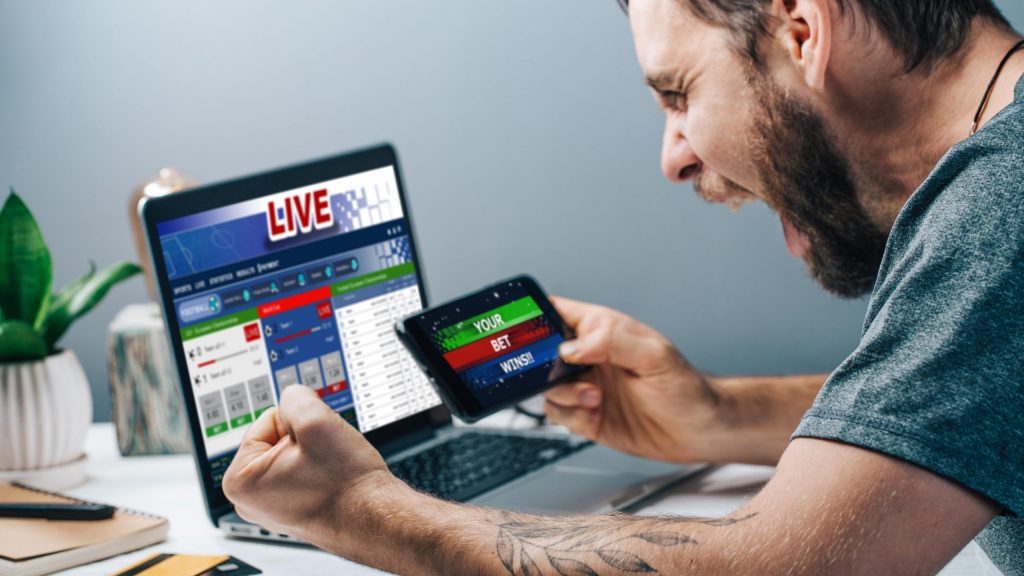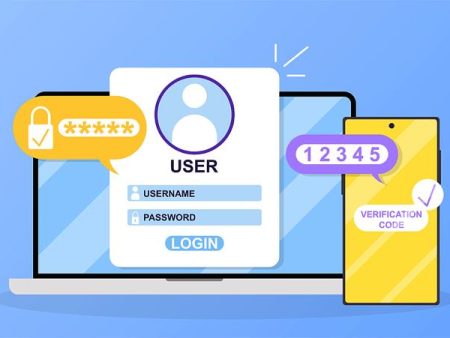
Introduction to Betting Licenses
Although the topic of betting licenses might not immediately capture your interest, it is essential for ensuring fair and legal online gambling. This article covers the importance of checking for a betting license when using bookmakers and provides an overview of the major gambling jurisdictions around the world. Additionally, it emphasizes the protective measures these licenses offer to gamblers.
The Emergence of Gambling Regulations
The regulation of online gambling became prominent in 1994 when Antigua and Barbuda enacted the first gambling legislation. This pivotal moment set the foundation for other authorities like the Kahnawake Gaming Commission and the UK Gambling Commission (UKGC) to follow suit. Today, operating or installing gambling software without a valid license from these regulatory bodies is deemed a criminal offense.
What Constitutes a Betting License?
A betting license is an official document issued by a gambling authority to a sports betting operator. This license confirms the legitimacy of an online gambling enterprise and assures that its operations meet specified standards. Each license is assigned a unique number, which can be verified for authenticity. Typically, the details of a license can be found in the footer of a sportsbook’s website, along with other legal information about the operator.
The Importance of a Bookmaker’s Gambling License
Seeking out a gambling license is crucial when choosing a sportsbook, as it is the best way to ensure the site is legitimate and that payouts will be honored on winning bets. A licensed betting site lowers the risk of financial loss and operates under strict regulations that, if not followed, can lead to the revocation of its license. Reasons to verify a bookmaker’s license include:
Ensuring Trustworthiness – Adherence to Rules and Regulations
Trust is paramount when engaging with any online betting platform. It is vital to confirm that a bookmaker is regulated and licensed, indicating fair operations and adherence to legal standards. Gambling at a site without a valid license carries significant risks, potentially jeopardizing both your money and personal information.
Guaranteeing Your Safety – Handling Complaints and Providing Protection
A proper gambling license also guarantees your safety on the site, not only by regulating betting activities but also by ensuring that the operator has robust security measures in place. Furthermore, the UK Gambling Commission employs teams and works with Alternative Dispute Resolution (ADR) services to address and resolve any customer complaints, ensuring support is available for bettors needing dispute resolution.
Promoting Responsible Gambling
Gambling can be a highly addictive activity; thus, legal bookmakers are required to promote responsible gambling. This is achieved by collaborating with organizations such as GamStop, GamCare, and Gamblingtherapy.org, which help players set limits and access support for gambling addiction. Choosing a licensed bookmaker ensures not only your security and trust but also supports responsible gambling practices.
UK Gambling Licensing and Betting Law Overview
Framework of Gambling Laws in Great Britain
In Great Britain, the legislative framework that guides sportsbooks on their betting services includes the Gambling Act of 2005 and the Gambling Bill of 2014. These laws focus primarily on remote and commercial gambling and are enforced by the local licensing authorities. Understanding these laws is crucial for both players and gambling business owners.
Gambling Act 2005
Introduced on October 1, 2005, by the Gaming Board of Great Britain, the Gambling Act 2005 is designed to prevent online gambling from being associated with crime across Great Britain. It ensures that gambling does not lead to disorder, maintains the fairness and transparency of all betting activities, and protects vulnerable individuals and children from gambling-related exploitation.
Gambling Bill 2014
The Gambling Bill of 2014 supplements existing regulations and introduces additional requirements. It mandates that companies based outside the United Kingdom obtain a valid license from the UK Gambling Commission (UKGC) to legally offer betting services to British residents. Moreover, the bill requires casinos and sportsbooks to possess a license to advertise their services nationally, reversing the earlier exemption for UK and certain whitelisted jurisdictions like Gibraltar. Additionally, it imposes a 15% tax on gross profits for all foreign operators within Great Britain.
Role of the UK Gambling Commission (UKGC)
The UK Gambling Commission, established in 2007 as a successor to the Gaming Board for Great Britain, plays a pivotal role in regulating and supervising gambling activities. It oversees gaming machines, bingo, arcades, and, as of 2013, the national lottery—previously managed by the abolished National Lottery Commission. Known for its stringent standards, the UKGC ensures that safe betting practices are upheld throughout the UK.
Filing a Complaint with the UKGC
Should issues arise in the operation of an online gambling site, stakeholders must know how to lodge a complaint with the UKGC. Here are the recommended steps:
- Visit the Gambling Commission’s official website.
- Familiarize yourself with the sportsbook’s complaint policy.
- File a complaint with the operator, adhering to the outlined policies.
- Await a response from the operator.
- If unsatisfied with the response, contact an Alternative Dispute Resolution (ADR) provider.
- Pursue resolution through the ADR.
It is important that the gambling operator provides details about the relevant ADR service, and in some cases, a formal letter may be issued confirming that the dispute can be taken to the ADR for resolution.
Global Betting Jurisdictions Beyond the UK
Overview of International Betting Authorities
While the UK Gambling Commission is a prominent regulatory body, several other jurisdictions around the world also play significant roles in the oversight of gambling activities. Each of these authorities enforces a specific set of regulations and standards that licensed operators must adhere to. Here’s a closer look at some of the leading betting jurisdictions globally:
Malta Gaming Authority (MGA)
Since its inception in 2001, the Malta Gaming Authority has been pivotal in shaping the online gambling landscape in Malta. As one of the first bodies to introduce legislation for online gambling, the MGA focuses on protecting vulnerable groups and children, and maintaining the integrity of gaming activities. Over the years, it has gained a reputation for rigorous oversight of numerous online betting sites.
Kahnawake Gaming Commission
Established in 1999 within the Mohawk Territory of Kahnawake, this commission has governed local gambling activities without interference from Canadian laws or other jurisdictions. Notably, in 2016, the Kahnawake Gaming Commission partnered with the New Jersey Division of Gaming Enforcement to restrict licensing to platforms that accept players from the USA, ensuring compliance with local and international gambling laws.
Alderney Gambling Control Commission
Formed in May 2000, the Alderney Gambling Control Commission operates independently of political influence from the states of Alderney. It aims to ensure the fairness and integrity of gambling operations within its purview. Recognized for its strict regulatory practices, Alderney is a benchmark for regulatory excellence in online gambling.
Curacao eGaming Authority
Curacao stands out as a prime destination for gambling startups due to its straightforward licensing process. This regulatory body not only promotes responsible gambling but also ensures that sportsbooks treat players fairly. Operators licensed in Curacao are subject to verification processes that uphold transparency and integrity in gambling operations.
These jurisdictions, each with their unique regulatory frameworks, contribute significantly to the global standards of gambling regulation, ensuring safe and fair betting environments across different regions.
Regulatory Oversight and Enforcement in Gambling
Capabilities of Gambling Regulators
Each licensing body and regulatory authority has a defined set of goals and responsibilities. Understanding what these organizations can and cannot do helps clarify their roles within the gambling industry.
What Regulators Will Do:
Regulatory bodies across various jurisdictions are responsible for several key functions:
- Issuing Gambling Business Licenses: Authorities grant licenses to ensure only compliant and capable operators run gambling businesses.
- Regulating Sports Betting Companies: Regulators oversee and enforce rules that govern sports betting operations.
- Issuing Personal Licenses: These are given to individuals involved in the gambling industry, ensuring they meet professional standards.
- Protecting Vulnerable Groups and Minors: A core function is safeguarding vulnerable populations from gambling-related harm.
- Ensuring Operator and Machine Fairness: Regulators check that both the gambling operations and their devices operate fairly and transparently.
What Regulators Will Not Do:
There are common misconceptions about the roles of gambling regulators, including tasks they do not perform:
- Mediating Disputes Between Players and Sportsbooks: They do not involve themselves directly in individual disputes.
- Protecting Deposited Funds at Bookmakers: Once money is deposited, the protection of those funds is not typically under the regulator’s purview.
- Providing Legal Advice to Players: Gambling regulators do not offer legal guidance to individuals.
For more details on specific missions, visions, and objectives, visiting the regulator’s official website is advisable.
FAQ About Betting Licenses
- Why is a bookmaker operating license important to me?
An operating license ensures that the gambling sessions you engage in are fair and that you are protected from potential exploitation by the operator. - Are there different types of gambling classifications?
Yes, gambling is classified into various forms including sports betting (like football and hockey), casino gaming (such as slots), and lotteries, which involve betting on drawn numbers. - Does one betting licensing authority cover all countries?
No, there is no single global regulatory authority; each country or region has its own regulatory body. - Who do I complain to if the bookmaker does not have a valid license?
Complaints about unlicensed bookmakers should be directed to the UK Gambling Commission or the respective regulatory authority in your jurisdiction. - Will I get my money back if the UKGC upholds my complaint?
While the UKGC takes complaints seriously, retrieving funds from a gambling operator can be challenging, and the UKGC does not typically involve itself in financial disputes between players and operators. - Is remote betting legal?
Remote betting is legal in many jurisdictions, provided that it is conducted through platforms licensed by recognized authorities like the UK Gambling Commission. - What process should I follow to raise a complaint?
To lodge a complaint, contact the operator first, wait for a response, and if unsatisfied, seek assistance from websites like Bet Guru 365 or directly reach out to the regulator for a resolution. - Are there different types of personal licenses?
Yes, there are typically two types of personal licenses: the Personal Function License for individuals dealing directly with gambling transactions, and the Personal Management License for those managing gambling operations. Additionally, premises licenses are issued for locations that host gambling activities.







